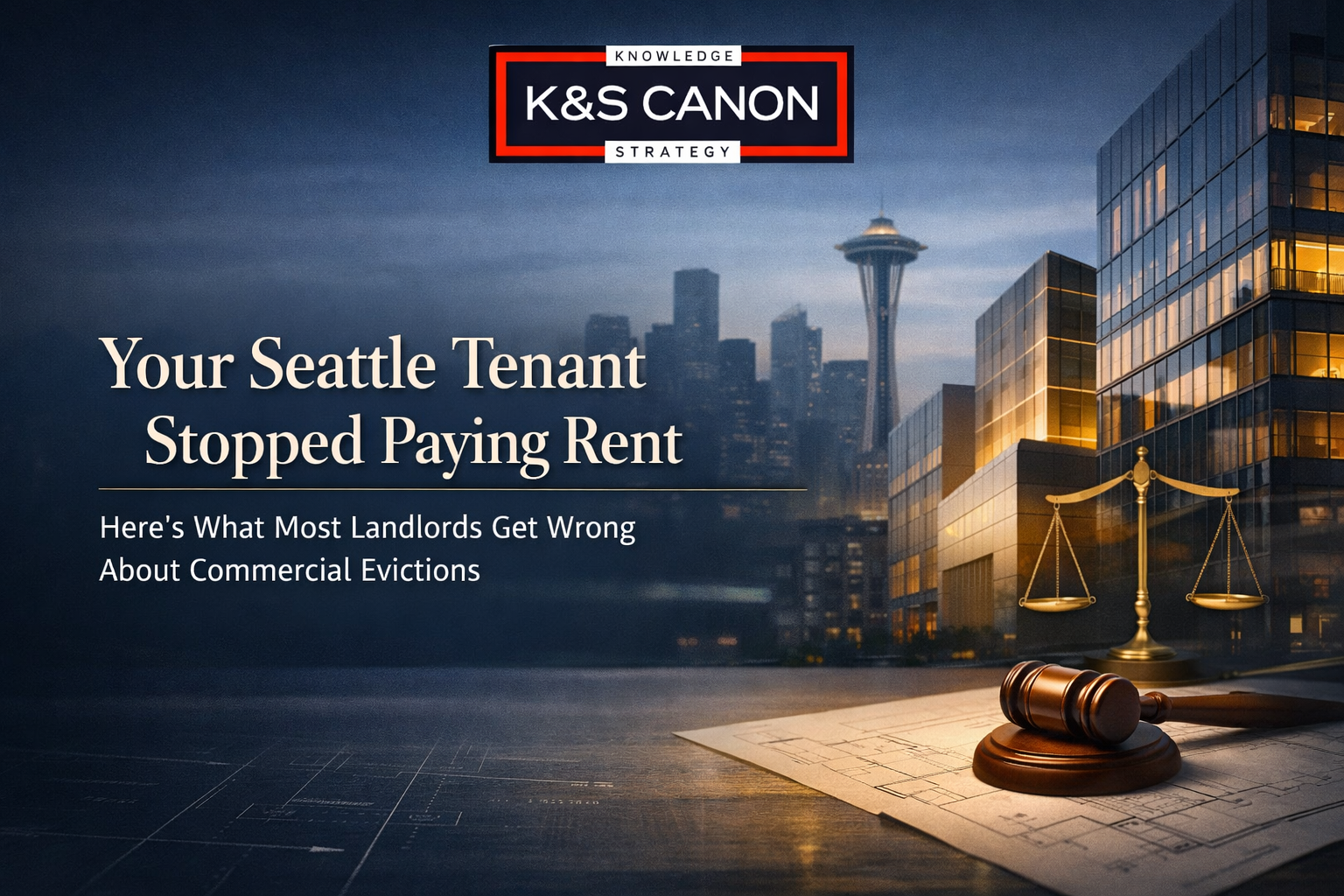Environmental Compliance in Washington Commercial Real Estate: SEPA and Beyond

Environmental regulations in Washington State often play a critical role in commercial real estate transactions and development projects. The State Environmental Policy Act (SEPA) and other environmental laws create obligations that can substantially affect project timelines, costs, and feasibility. Property owners who fail to address these requirements early may face expensive delays and complications.
Washington's environmental framework goes beyond federal requirements, reflecting the state's commitment to environmental protection. This means commercial property owners must address both federal regulations and Washington-specific requirements, which can be more stringent than what other states require. These environmental considerations are part of the broader compliance and regulatory landscape in commercial real estate that property owners must address.
The State Environmental Policy Act (SEPA)
SEPA requires environmental review for projects that may have environmental impacts. This law requires that environmental consequences be considered before decisions are made on proposals such as development projects, permits, or policy changes. The Washington State Department of Ecology provides detailed guidance on SEPA requirements and processes.
For commercial real estate, SEPA review can apply to new construction, major renovations, zoning changes, and large tenant improvements. The process begins with an environmental checklist that evaluates potential impacts on air quality, water resources, wildlife habitat, traffic patterns, and community character.
SEPA Thresholds: Not every project requires SEPA review. Small projects often qualify for categorical exemptions, while larger developments typically need environmental assessment. The specific thresholds vary by jurisdiction, so checking with local planning departments early in your project planning can save time and could help prevent unwanted surprises.
Timeline Considerations: SEPA review can add several months to your project timeline. Environmental assessments, public comment periods, and potential appeals often extend the process. Planning for these delays in your project schedule may help avoid financing complications and lease commitment issues.
Contaminated Site Management
Washington's Model Toxics Control Act (MTCA) governs cleanup of contaminated properties. This law affects many commercial properties, particularly those with current or historical industrial uses.
Due Diligence Requirements: Before purchasing commercial property, consider conducting Phase I Environmental Site Assessments to identify potential contamination. If contamination is suspected, Phase II assessments involving soil and groundwater testing would likely become necessary.
Cleanup Obligations: Property owners may be responsible for cleanup costs even if they didn't cause the contamination. MTCA provides some protections for innocent purchasers, but these protections require following specific procedures during the acquisition process.
Voluntary Cleanup Program: Washington offers a Voluntary Cleanup Program that allows property owners to work with the Department of Ecology to address contamination. This program can provide liability protections and cleanup standards that make redevelopment feasible. Learn more about this program through the Washington State Department of Ecology's cleanup programs.
Stormwater Management
Washington requires stormwater management for many commercial developments. The state's stormwater regulations aim to protect water quality in Puget Sound and other water bodies.
Construction Requirements: Projects disturbing more than one acre typically need Construction Stormwater General Permits. These permits require erosion control measures, monitoring, and reporting throughout the construction process.
Permanent Controls: Completed developments often need permanent stormwater management systems. Low-impact development techniques like bioretention facilities and permeable paving can meet regulatory requirements while potentially reducing long-term maintenance costs.
Energy Efficiency and Building Performance
Washington's Clean Buildings Act affects large commercial buildings by requiring energy performance standards and benchmarking. Buildings over 50,000 square feet must meet energy use intensity targets beginning in 2026.
Compliance Deadlines: Different building types have staggered compliance deadlines through 2030. Office buildings and retail spaces face earlier deadlines than warehouse and manufacturing facilities.
Investment Implications: Properties that don't meet energy performance standards may face penalties and reduced marketability. Proactive improvements can qualify for utility rebates and tax incentives while improving tenant satisfaction.
Practical Steps for Property Owners
Consider starting environmental review early in your project planning. Environmental consultants familiar with Washington regulations can help identify potential issues before they become costly problems.
Maintain documentation of all environmental assessments, permits, and compliance activities. This documentation proves valuable during property sales, financing, and lease negotiations.
Become familiar with any and all environmental factors in your investment analysis. Properties with environmental challenges aren't necessarily bad investments, but they require different risk management approaches and potentially higher returns to compensate for additional work.
Work with professionals who know Washington's environmental landscape. Local environmental consultants, attorneys, and engineers bring valuable knowledge of state-specific requirements and agency practices.
This information is provided for educational purposes only. Environmental requirements vary by location and project type. Please consult with environmental professionals and attorneys experienced in Washington environmental law for guidance on your specific situation.
Facing environmental compliance challenges with your commercial real estate project? Contact K&S Canon to discuss your specific situation.




